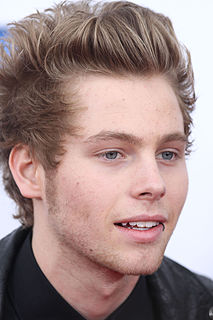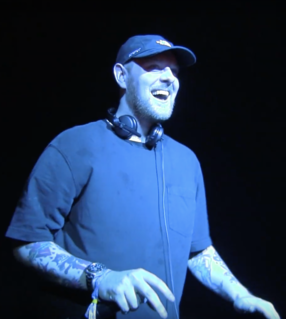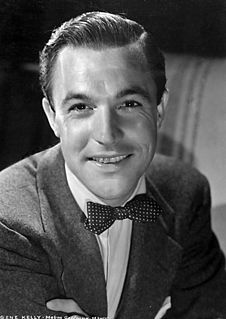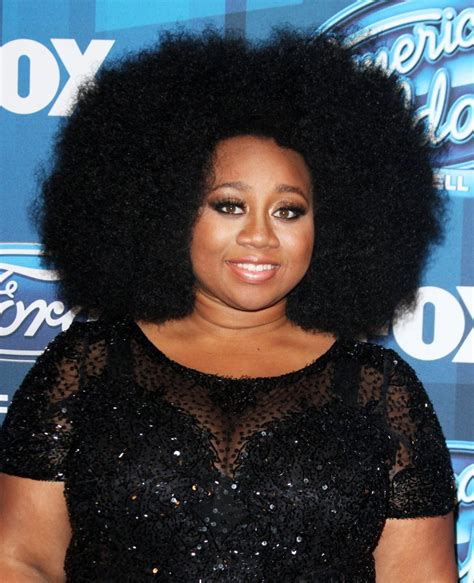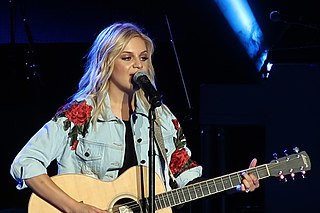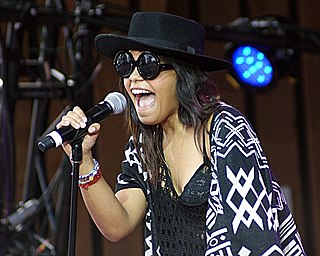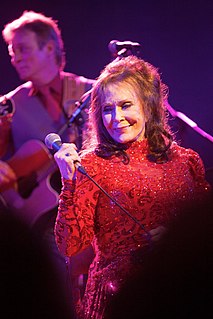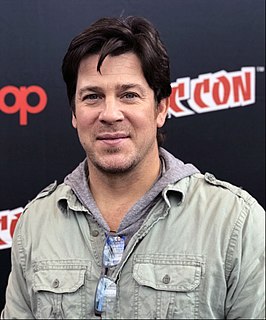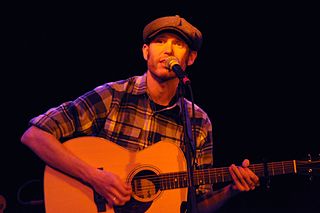A Quote by Diane Warren
I see pictures in my mind and become the character in the song as I'm writing. It's kind of method songwriting, where you're the actor in the song.
Related Quotes
Musically, though, you're a character and you're singing a song. If you're not your own character, you're the character in the song, most of the time. Even blues musicians, a lot of them who were the most realistic, at times, they were singing a song and portraying a character in the song. There's something to be said for getting involved in the emotion of a song, too, with the characters.
I remember writing lyrics for 'Take Me to Church' for a long time before I even had a song in mind for. It's not that I was trying to write that song for a year, but sometimes you just kind of collect lyrical and musical ideas and don't actually complete the song until you feel like they work together and have a home.
An audience will let you know if a song communicates. If you see them kind of falling asleep during the song, or if they clap at the end of a song, then they're telling you something about the song. But you can have a good song that doesn't communicate. Perhaps that isn't a song that you can sing to people; perhaps that's a song that you sing to yourself. And some songs are maybe for a small audience, and some songs are for a wide audience. But the audience will let you know pretty quickly.
I always try to write a song, I never just want to write a record. Originally I was not writing songs for myself. ....And I can say this, most of the people who have recorded my songs are songwriters themselves. ... Even if I don't release it myself, somebody else might hear it and want to record it. When you write a song, it gives it that potential. When you write a song, a song has longevity. ... So I wanted to sing inspirational music, and that's exactly how I approached it-only the words have been changed to declare my relationship with God. Songwriting is my gift from God.
But once you've made a song and you put it out there, you don't own it anymore. The public own it. It's their song. It might be their song that they wake up to, or their song they have a shower to, or their song that they drive home to or their song they cry to, scream to, have babies to, have weddings to - like, it isn't your song anymore.
If I found out some gal was trying to steal my guy, I'd want to give her a black eye! Instead, I wrote this song. At the time I was writing each song [on this album], you could figure out the frame of mind I was in by listening closely. With every song I've ever recorded, I'm in it. I wouldn't write about it if I wasn't in it.
I don't really have a set-in-stone process or formula. Sometimes the melody is there and I have to chase down the lyrics. Sometimes, the song is there and I have to make the melody fit. What I've learned so far about songwriting is that I can't force a song. If I try to do that, it's hollow, and people know a hollow song when they hear it. It's the song they stop listening to and forget about. I'd prefer not to write those kinds of songs.

